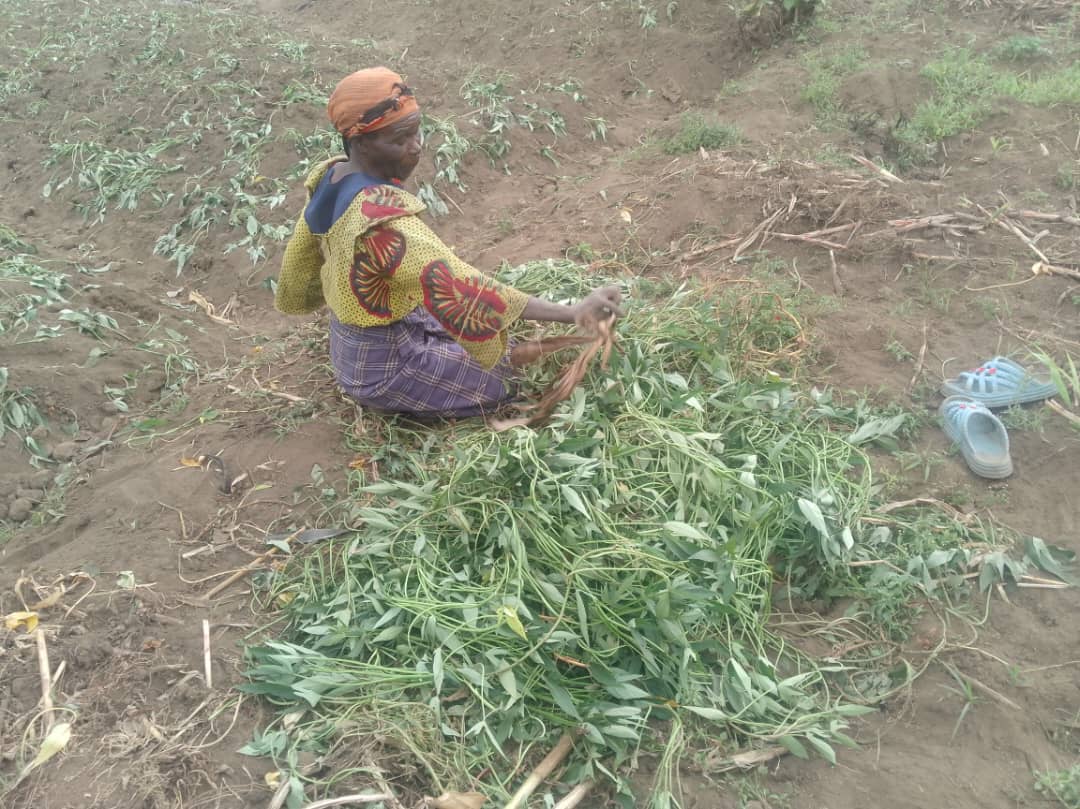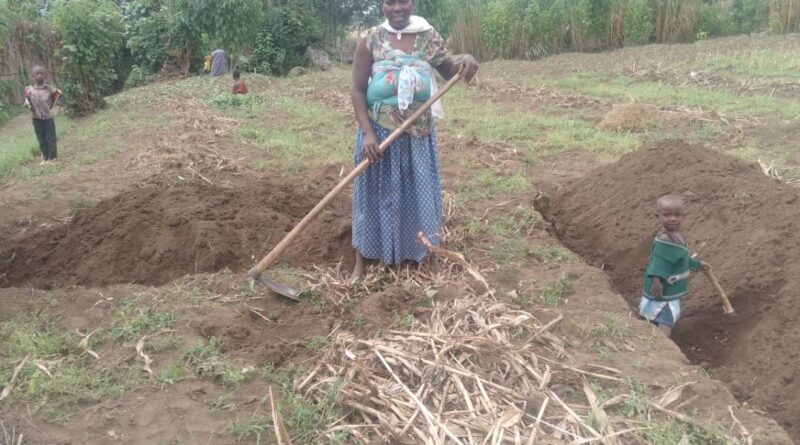Burera: Whitefly plague ravages crops, onflicting devastating losses on farmers
Farmers working in marginalized areas especially in the Cyanika sector of Burera District report that they no longer see any yield because a whitefly pest is attacking their crops.
They explain that this pest has been devastating crops for nearly three years and is becoming increasingly aggressive with each passing day. For example, a farmer who plants 15 kilograms of beans is unable to harvest at least 30 kilograms, even though he should be able to yield a 100‐kilogram sack if his/her crops were properly cared for.
Some of the farmers interviewed by Greenafrica.rw, including Manishimwe Charlotti, Icyingeneye Immaculate, and Nyirankuriza Theresa from various villages in Karambo and Kidaho (within the Kagitega cell of Cyanika), said they have chosen to grow sweet potatoes because, at the very least, the whitefly pest does not damage them.
They added that they might also switch to cultivating other root crops,such as Irish potatoes, sweet potatoes, and even cassava (despite its lower yield),since the pest primarily attacks leafy crops like various vegetables, leguminous crops such as beans, and maize, leaving farmers with nothing.
Theresa Nyirankuriza explained, “Last year, 2023–2024, I planted beans, but the pest came and devoured the leaves, preventing pod formation and causing me losses. Now, you see, I have chosen to grow sweet potatoes because the pest doesn’t affect them since it feeds on leaves. Those with the means are planting Irish potatoes, which also do well, but it’s the beans and vegetables,like cabbage, tomatoes, and other varieties that are suffering.”
Icyingeneye added that when the pest first appeared, they tried various pesticides to fend it off, but all their efforts proved fruitless. He said, “We applied a pesticide containing ‘roketi’ because it was supposed to combat the pest; it seemed to reduce the infestation for a while, but then it returned. We also tried another insecticide, but nothing worked. Now, our only option is to stop growing beans and vegetables and focus on root crops, although we fear that even these might eventually lead to food shortages.”
Charlotti confirmed this, noting that the problem appears to have originated in Kidaho village and is progressively worsening, affecting a large area. She expressed concern that, unless action is taken, the pest could start damaging plant ecosystems and other crops,such as bananas, fruit trees, and more,since it has also been spotted on them, even though significant damage is only just beginning to appear.
She further explained that the pest behaves similarly to infestations once seen on mango trees in Eastern Rwanda, where it would colonize a tree so extensively that the only recourse was to cut it down. Although measures were initially taken to counter infestations on trees, this situation is very different.
Dieudonne Mugiraneza, Manager of the RAB Rwerere Station, told Greenafrica.rw that they are aware of the problem and are working urgently to resolve it by providing training to farmers on the proper use of pesticides to combat this pest.
He stated, “We have identified the problem, and in recent days we visited the area to assess the situation. Tomorrow (Wednesday), we plan to visit the farmers again to provide training on how to fight this pest, and we believe that things will go well.”
He continued, “We expect that after the training, the pest will not cause too much damage because it is relatively easy to control. However, the real issue is that it creates confusion among people,you might go out wearing a yellow, green, or red outfit and come back looking white because the pest is everywhere. But we are confident that it can be resolved.”
When we spoke with the farmers, they said they are determined to tackle this problem on their own, but their efforts seem futile because the pest has overwhelmed them, leaving them utterly bewildered by its sheer impact.



It’s good to report the issues, this brings some resolutions. And I’m technician in plant biotechnology… Anytime they need our support, we are ready to work for them. Voluntarily I have will. Pest, diseases, plant pathology in general and other related is what i love to solve.